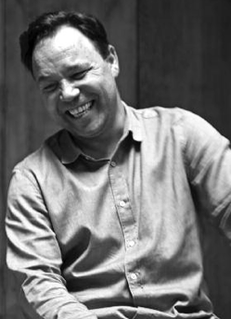A Quote by John Ciardi
Related Quotes
There is scarcely a town or school in Russia from which boys have not run away to the war. Hundreds of girls have gone off in boys' clothes and tried to pass themselves off as boys and enlist as volunteers, and several have got through, since the medical examination is only a negligible formality required in one place, forgotten in another.
The war now is away back in the past, and you can tell what books cannot. When you talk, you come down to the practical realities just as they happened. You all know this is not soldiering here. There is many a boy here today who looks on war as all glory, but, boys, it is all hell. You can bear this warning voice to generations yet to come. I look upon war with horror, but if it has to come, I am there.
I was born just after the end of World War II, and with my friends in our little suburban backyards in New Jersey, we used to play war a lot. I don't know if boys still play war, they probably do, but we were thrusting ourselves into recent history and we were always fighting either the Nazis or the Japanese.
Most of the boys would come with bits of equipment that their fathers had given them from their war days - helmets, canteens, binoculars, these kinds of things - that leant a kind of authenticity to the games we were playing. But, of course, my father never gave me anything. So I began to question him. You know, Why don't you have anything from the war? And I think he was...embarrassed to tell me he hadn't fought, because, you know, little boys want to turn their fathers into heroes, and he didn't want to be diminished in my eyes.
The classic war movies of the post-Vietnam era have generally taken on grand, philosophical themes: the meaninglessness of war, the grinding down of man by the machine - the machine being war itself, represented by someone like Gunnery Sergeant Hartman in 'Full Metal Jacket,' the sadistic marine who turns his boys into instruments of death.
[T]ake the war on drugs. The average American says, "The war on drugs has been beneficial." The rest of us see reality. This war has destroyed thousands of Americans. It is also a pretext for government agents to rob innocent people in airports and on the highways - they seize and confiscate large amounts of cash and say to their victims: "Sue us if you don't like it." And more and more judges, politicians, intelligence agents, and law-enforcement officers are on the take - as dependent on the drug-war largess as the drug lords themselves.


































